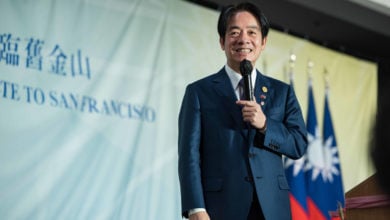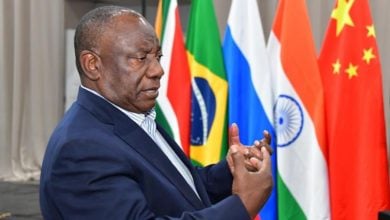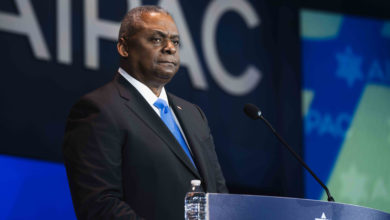On December 2, Donald Trump announced that he had talked on the phone with Taiwan leader Tsai Ing-wen. This moment marked a huge departure from diplomatic protocol established between China and the United States in 1979.
Trump claimed that it was just a congratulatory call he was entitled to take while news outlets trembled in shock at what they thought could be an unintentional and ignorant shot at China. International newspapers associated with China have blasted Trump for his actions, while government officials have given more subtle, but stern, responses.
In the days that have passed, more and more has come out to reveal that this call was months in the planning, on both sides of the call. Bob Dole has publicly explained he was hired as a lobbyist to make the connection and numerous members of Trump’s advisors have strong ties with Taiwan.
China’s Foreign Minister Wang Yi called it “improper behavior with a stealthy and malicious intent.” While the details are still slowly coming out, this certainly sounds to be the case. Tsai Ing-wen is part of the Taiwan independence movement and a number of Trump’s cabinet appointments have been cultivating ties with Taiwan.
The more time passes, the more it becomes obvious that this was not just an “uninformed” move by someone who does not understand the complex relationships in the region. In the days since, Trump has taken to Twitter and other media to directly attack China. He has even said he does not feel bound to the “One China” policy – the basis for relations under the 1979 understanding.
Many have expressed worries that this could be the “opening shot” in escalating aggressions against China, but only time will tell. Time in which it is imperative to pay attention and study historical context.
What does this have to do with China?
The first thing to make clear is that Taiwan is not a country. Few countries recognize it as a distinguishable diplomatic entity. Nor is it an autonomous region of China, like Tibet or Xinjiang.
There is a complicated and dynamic relationship of power between the People’s Republic of China and Taiwan. Trump’s tweet celebrating that the “President” of Taiwan had called him was a resounding act of disrespect towards the national sovereignty of China.
In the 1930s, while Mao and the Red Army were fighting Japanese imperialism and struggling for liberation, they also gave their support to the Taiwanese fighters against Japanese rule on the island. Later, in the midst of the Chinese civil war that culminated in the victory of the revolutionary forces and the establishment of the People’s Republic of China in 1949, the reactionary nationalists (Kuomintang) fled across the Taiwan Strait and set up their capitol in Taipei – calling their regime the Republic of China.
It was from there that they established their base to promote counter-revolution. The imperialist powers recognized the Kuomintang as the “legitimate government” of China. When the United Nations was formed, the country’s permanent Security Council seat was given to the right-wing, pro-imperialist Kuomintang, who continued to be based on the island of Taiwan.
The Taiwan breakaway administration is supported by U.S. imperialism to this day, even moving to the brink of war to defend this outpost against the People’s Republic of China. However, this position softened after the United States developed a relationship with the PRC in a cynical maneuver to split the bloc of socialist states and pit China against the Soviet Union.
Beijing-Taipei relations improved dramatically under the “1992 Cross-Strait Consensus.” Under this agreement, the People’s Republic of China and the Kuomintang acknowledged the existence of “One China,” while disagreeing which of the two was the legitimate government of China. The dynamics have continued to evolve as the PRC has looked to gradual reunification with the island and as a reactionary Taiwan independence movement has found the space to grow since the end of the Kuomintang’s decades-long dictatorial rule.
This is a matter of national sovereignty and is a final facet of the civil war in China that has yet to be resolved. It is not a conflict that has come about due to an issue of nationality, but a division created by the imperialists in the middle of the 20th century for their own benefit.
Not just a breach in protocol
While President Obama’s strategy of the “Pivot to Asia” – under which the bulk of the U.S. military machine is redirected to the Pacific – placed more pressure on China, and the whole region, President-elect Trump’s plan looks to be even more aggressive. He is not just talking about competing with China, but of really going to battle with them. Trump’s actions are poised to regress U.S. relations with China to the time of unmitigated hostility – not just economically, but potentially militarily.
Trump has given every indication that he wants to go toe-to-toe with China. It will be people in both countries, and around the world, who will suffer the price of his arrogance and imperialist, expansionist attitude. While we wait attentively, ready to fight back against whatever aggressions Trump may have in store, there is no time like the present to remind ourselves: No imperialist aggression! Trump: Hands off China!






